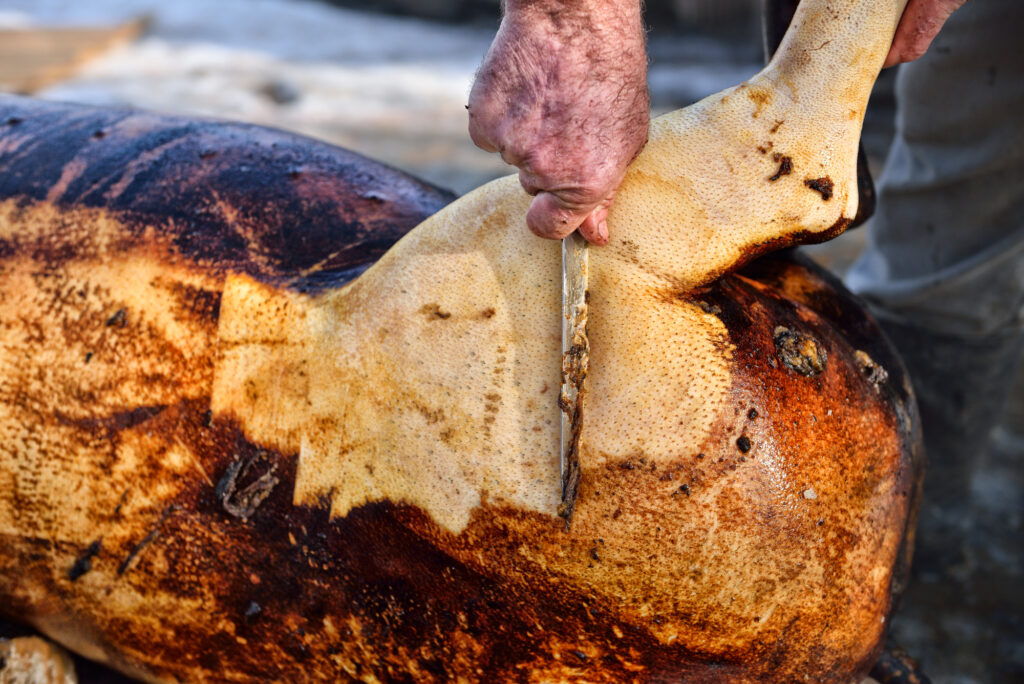Our international litigation team has been seeing a veritable ton of a particularly sinister crypto/forex scam: The “Sha Zhu Pan” (Chinese: 杀猪盘) or, “Butchering the Pig” scam.
The typical email we receive from the victims of this forex or crypto scam is usually something like the below email, which describes a textbook “butchering the pig” scam:
I met a person on a dating app. This person suggested we switch our chat conversation over to WhatsApp. Our relationship developed and deepened over sharing life experiences and emotional stories. After a period of time, this person casually mentioned the incredible gains they were earning on their investments, and then introduced me to this forex (foreign exchange)/cryptocurrency investment opportunity.
After researching and testing the investment opportunity out and making huge gains on my initial deposits, it seemed legitimate and I sent more money to the investment firm. I was told I could be a VIP member and even make higher gains if I sent more money, so I did.
Later, I tried to withdraw money from my investment account, but a customer service representative is telling me that I owe capital gains tax [or that my account has been frozen because authorities believe it is involved in money laundering]. The customer service representative told me that if I wired more money, I could then withdraw my money and profits. So I sent more money and cryptocurrency, but I still cannot withdraw any money. Now the customer service representative no longer replying to my messages and the person I initially met and introduced me to the investment is also not responding. I have now lost hundreds of thousands of dollars and I do not know what to do.
Why is this scam called “Butchering the Pig?”
This scam is called “Butchering the Pig” because targets are engaged daily for several months before large amounts of money are sent to the scammers; in other words, it is like fattening up a pig before the slaughter. The scammers, using a profile of an attractive (usually) Asian man or woman, lead the target (the pig) through carefully scripted conversations. Once the target has sent an initial “investment” deposit, the account will show impressive gains. Sometimes the scammer will allow the target to withdraw a small amount of money to prove its legitimacy. The target is encouraged to send further funds to maximize this investment opportunity. Eventually, the scammers cut off all communication, leaving the target without their money or their “profits.”
What makes this scam so insidious and so successful is that while the amounts stolen usually range between USD$10,000 and $2,000,000+, the sheer number of scams occurring is overwhelming. We recently heard from a prominent lawyer who lost more than $5 million on this scam. He eventually decided not to pursue his claims because he feared the publicity would destroy his legal practice.
Between January and July of 2021, the FBI alone received nearly 2,000 complaints of cryptocurrency-focused Sha Zhu Pan scams and there is little doubt the number is considerably higher. The police in China don’t really care because they have more important things to do and in any event they are not all that fond of Americans and Europeans (the usual victims), especially those of Chinese ethnicity, who seem to make up a good chunk of the victims. The police in the foreign country (usually in North America or Europe) have too many cases and more important things to do and so they usually don’t do anything either.
What can you do if you have been a victim of a “Butchering the Pig” scam?
Despite the backlogs, it is always a good idea to report the scam to law enforcement authorities. In the United States, this is done by filing a complaint with the FBI’s Internet Crime Complaint Center (IC3). Doing this can perhaps help you with your taxes and/or your insurance and it also can help in securing a recovery from the scammers’ bank. Your timing of this reporting is critical and it varies depending on what else you do in trying to recover.
Our law firm’s international litigation team has taken on a number of these cases (we usually have two or three going at any given time), so we know that recovering some or even all of the funds lost (without the make-believe “profits”) is possible. When we get these cases we begin by conducting basic investigatory work to determine whether there is any real shot of recovery. If we are able to track the bank wires or cryptocurrency transfers to a bank account or a crypto exchange in a place with good laws – perhaps Singapore, Australia, or Hong Kong (all of which we have encountered) – we then map out the various things we can do to help our clients take action to try to recover their funds.
Each case is different and each depends on the amount lost and the countries and nationalities involved, along with the current state of the scam. I would love to go into more detail on what we do to recover funds lost to scammers, but the last thing I want to do is tip them off here. Sorry.
Bottom Line: Be careful out there and don’t let this scam happen to you. And if it does happen to you, do not give up on trying to secure a recovery.

























